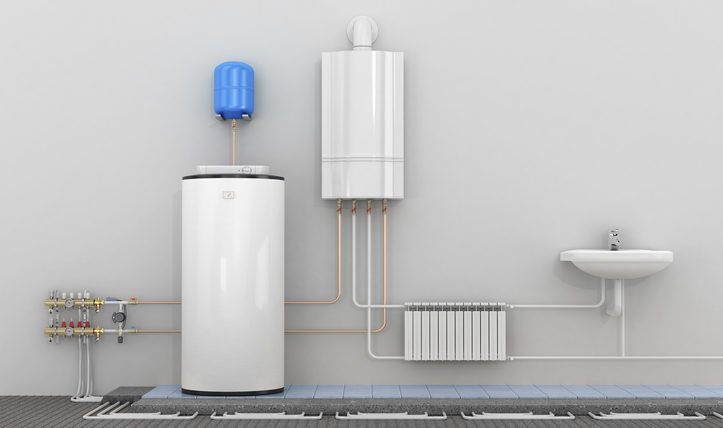Your HVAC (Heating, Ventilation, and Air Conditioning) system plays a crucial role in maintaining your home’s comfort and air quality. However, like any complex system, HVAC units can develop problems over time, leading to inefficiencies, higher energy bills, and even complete system failures. Understanding the common issues with HVAC systems and taking proactive steps to prevent them can help you avoid costly repairs and ensure your system runs smoothly year-round. We will explore some of the most common HVAC problems and how to prevent them from disrupting your home’s comfort. You can contact Trust 1 Services Plumbing, Heating, and Air Conditioning of Hanover if you are looking for a professional.
Types of HVAC problems
- Clogged Air Filters: The Importance of Regular Replacement
One of the most common HVAC problems is a clogged or dirty air filter. Air filters trap dust, dirt, and other airborne particles, preventing them from entering your HVAC system and circulating throughout your home. However, when filters become clogged, they restrict airflow, forcing the system to work harder to maintain the desired temperature. This reduces efficiency and can lead to increased wear and tear on the system.
To prevent this issue, it is essential to check and replace your air filters regularly. Depending on the filter type and the dust and debris level in your home, filters should be replaced every one to three months. We will explore how regular filter replacement can improve airflow, enhance indoor air quality, and extend the lifespan of your HVAC system.
- Refrigerant Leaks: Maintaining the Cool in Your AC
Refrigerant is the substance that cools the air in your air conditioning system. When refrigerant levels are low, typically due to leaks, your AC may struggle to cool your home effectively. Low refrigerant can cause the system to run continuously without reaching the desired temperature, leading to higher energy bills and potential damage to the compressor, which is a costly component to replace.
To prevent refrigerant leaks, it is important to have your HVAC system inspected and serviced regularly by a qualified technician. During these inspections, the technician can check for signs of leaks and ensure that the refrigerant levels are correct. If a leak is detected, it should be repaired promptly, and the refrigerant recharged to the manufacturer’s specifications. We will explore how addressing refrigerant issues early can help maintain the efficiency of your air conditioning system and avoid expensive repairs.
- Dirty Coils: Keeping the Heat Exchange Efficient
The coils in your HVAC system, both the evaporator coil inside your home and the condenser coil outside, are essential for the heat exchange. Over time, these coils can become coated with dirt, dust, and debris, reducing their ability to transfer heat effectively. Dirty coils can lead to reduced cooling capacity, increased energy consumption, and even system overheating.
Keep the area around the outdoor unit clear of debris and vegetation to prevent dirty coils from affecting your HVAC system’s performance. Additionally, scheduling regular maintenance, including coil cleaning, can help ensure your system operates efficiently. We will explore how maintaining clean coils contributes to your HVAC system’s overall performance and longevity.
- Thermostat Issues: Ensuring Accurate Temperature Control
Thermostat problems are another common issue that can affect the performance of your HVAC system. A malfunctioning thermostat can cause the system to cycle on and off too frequently, run continuously, or fail to reach the desired temperature. This can lead to discomfort in your home and unnecessary wear on the HVAC components.
To prevent thermostat issues, ensure your thermostat is calibrated and functioning correctly. If you notice any irregularities in temperature control, it may be time to replace the thermostat or upgrade to a programmable or smart thermostat for more precise control. We will explore how maintaining your thermostat can improve the efficiency of your HVAC system and enhance your home’s comfort.
- Blocked or Leaky Ducts: Ensuring Proper Airflow
The ductwork in your home distributes heated or cooled air throughout the living spaces. When ducts become blocked by debris or develop leaks, the efficiency of your HVAC system is compromised, leading to uneven heating or cooling, increased energy usage, and poor indoor air quality.
To prevent issues with your ductwork, it’s important to inspect your ducts regularly for blockages, leaks, and damage. Sealing leaks and insulating the ducts can improve airflow and reduce energy loss. Keeping the vents and registers clean and unobstructed will help ensure that air is distributed evenly throughout your home. We will explore how maintaining your ductwork can enhance the performance of your HVAC system and improve overall indoor comfort.
Proactive Care for a Reliable HVAC System
Maintaining your HVAC system through regular inspections, timely maintenance, and prompt repairs is essential for ensuring its reliability and efficiency. By addressing common issues such as clogged filters, refrigerant leaks, dirty coils, thermostat problems, and ductwork issues, you can prevent costly breakdowns and enjoy a comfortable home environment year-round. We will explore how taking a proactive approach to HVAC care not only extends the life of your system but also saves you money on energy bills and repairs, making it a worthwhile investment in your home’s comfort and well-being.

